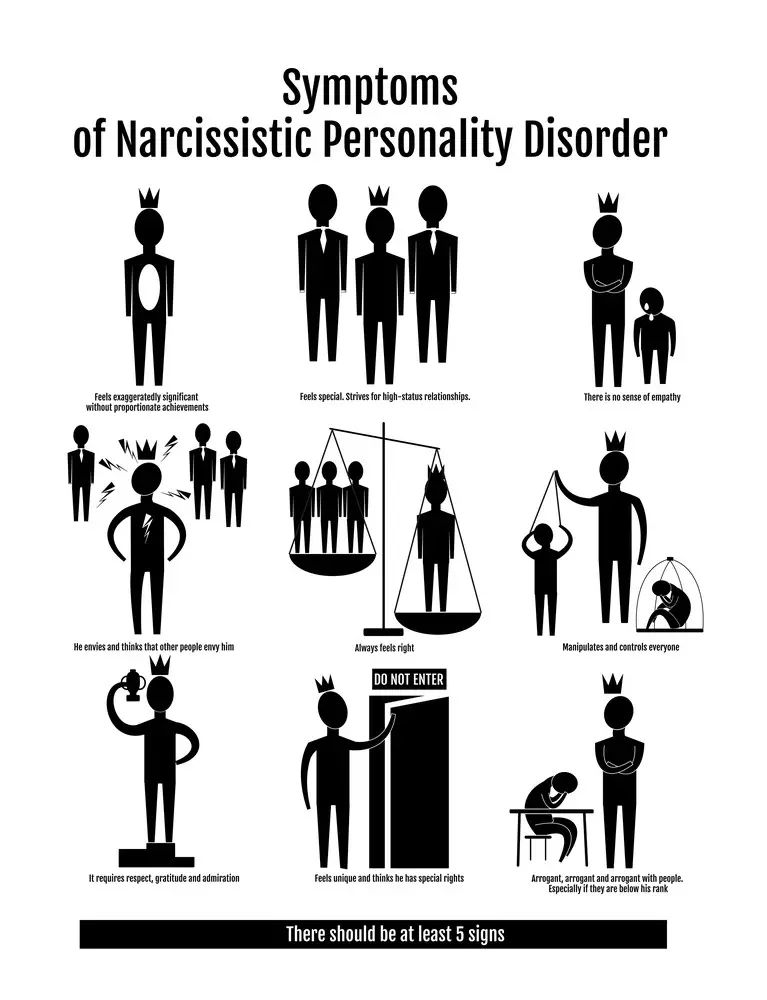As a BetterHelp affiliate, we receive compensation from BetterHelp if you purchase products or services through the links provided
In today’s society, encountering narcissism is an increasingly prevalent issue, posing challenges in various aspects of life, including relationships as individuals raised within religious homes; addressing and navigating such situations through a biblical lens is often challenging. This article provides guidance and support in dealing with a narcissist rooted in biblical teachings and wisdom.
Having experienced a turbulent marriage to a narcissist, I navigated numerous challenges, including separation and a years-long ongoing custody battle for our five children. This journey provides valuable insights into incorporating one’s faith to cope with, confront, and ultimately heal from the emotional ordeal that the presence of a narcissist may cause in one’s life.
Key Takeaways
- The article offers insight into understanding narcissism from a biblical perspective.
- Biblical wisdom and teachings are essential in dealing with a narcissist, emphasizing love and forgiveness.
- The author’s experience highlights the importance of healing and seeking support for victims of narcissists within a Christian context.
Understanding Narcissism from a Biblical Perspective
Narcissistic Personality Disorder
Narcissistic Personality Disorder (NPD) is a mental health condition characterized by a pattern of grandiose self-importance, lack of empathy, and a strong need for admiration. People with NPD tend to be extremely self-centered, believing they are superior to others and deserve special treatment.
From a Biblical perspective, this disorder can be viewed as a manifestation of the sinful nature of mankind. Ephesians 2:3 states that humans are “by nature children of wrath,” referring to the innate tendency to sin and fulfill selfish desires.

Sin and Selfishness
Narcissism is closely related to sin and selfishness. In the Bible, selfishness is considered sinful, as exemplified in Philippians 2:3-4, which advises, “Do nothing out of selfish ambition or vain conceit. Rather, in humility value others above yourselves, not looking to your own interests but each of you to the interests of the others.” People with narcissistic tendencies focus on themselves and their desires, disregarding the needs and feelings of others, which clearly contradicts the biblical teachings of selflessness and sacrificial love.
Pride and Haughty Behavior
Pride and haughty behavior are also key aspects of narcissism. The Bible speaks strongly against such attitudes. For example, Proverbs 16:18 warns, “Pride goes before destruction, and a haughty spirit before a fall.” Narcissists often display an inflated sense of self-importance, which involves arrogance and a lack of humility. In contrast, Jesus Christ teaches the importance of humility in Matthew 23:12: “Whoever exalts himself will be humbled, and whoever humbles himself will be exalted.“

Biblical Wisdom for Dealing with a Narcissist
Recognizing the Signs of Narcissism
In dealing with a narcissist, it is essential first to recognize the signs of narcissism. The Bible teaches the importance of discernment and truth (1 Corinthians 2:14). Narcissists often exhibit excessive self-centeredness, a sense of entitlement, and a lack of empathy. By understanding these traits, we can better navigate relationships with narcissistic individuals.
Setting Firm Boundaries
Establishing firm boundaries is crucial when dealing with a narcissist. The Bible encourages us to protect ourselves against toxic influences (Proverbs 4:23). Maintaining healthy boundaries can help preserve our well-being and spiritual health in the face of a narcissist’s manipulative tactics. Examples of boundaries might include setting limits on communication, establishing consequences for inappropriate behavior, and determining personal values that must be respected.
Trusting in God’s Control and Wisdom
In managing a relationship with a narcissist, it is important to trust in God’s control and wisdom. Philippians 4:6-7 reminds us to bring our concerns to the Lord, who can provide peace and guidance in challenging situations. By relying on God’s wisdom, we can find strength and assurance in navigating the complexities of dealing with a narcissist.
In conclusion, understanding the signs of narcissism, setting firm boundaries, and trusting in God’s control and wisdom are essential keys to biblically addressing relationships with narcissistic individuals. By applying these principles, we can foster healthier relationships that honor God.

The Role of Love and Forgiveness in a Christian’s Response
Exercising Empathy and Compassion
One critical aspect of a Christian’s response to dealing with a narcissist is to exercise empathy and compassion. As Jesus taught, love is the foundation of any healthy relationship. Christians are called to view others through love, seeing their needs, hurts, and struggles. In dealing with a narcissist, it may be challenging to express empathy and compassion, but a Christian must rely on the Holy Spirit’s guidance.
Forgiving Narcissistic Behavior
Forgiveness is another essential element of a Christian’s response to narcissism. In the Bible, Jesus teaches the importance of forgiving others, even when difficult. Like all people, Christians must acknowledge that narcissists need forgiveness and repentance. By forgiving narcissistic behavior, Christians can free themselves from the anger and resentment that may otherwise consume them, allowing them to grow closer to God.

Heal with scripture. Confront narcissism.
Pursuing Healthy Relationships
A Christian’s response to dealing with a narcissist also involves pursuing healthy relationships. Although forgiveness and love are essential, it is crucial to recognize when it may be necessary to distance oneself from a narcissist to maintain personal well-being. Establishing boundaries is crucial in maintaining a healthy relationship. As a believer in Christ, it is essential to seek the Holy Spirit’s wisdom in determining which relationships are beneficial and which should be left behind. Implementing this balance helps create a foundation for thriving, God-centered relationships.
Healing and Support for Victims of Narcissists
Relying on Prayer and the Holy Spirit
For victims of narcissists, turning to prayer for comfort and strength is essential. Prayer can provide a deep sense of connection with God, who is their ultimate source of support. The Holy Spirit, often referred to as the “helper” or “comforter” in Scripture, is available to guide and provide wisdom for those dealing with narcissistic traits in others. Scripture, such as 2 Timothy 3, highlights the presence of ungodly individuals, including those exhibiting narcissistic behaviors, in the last days. By relying on the Holy Spirit, Christians can navigate the challenges of having a narcissist.
Seeking Professional Help and Guidance
Interactions with narcissistic individuals significantly impact mental health. Victims should not hesitate to seek professional help from psychologists, counselors, or therapists. These professionals can offer helpful insights and support for those struggling with the effects of narcissistic abuse. Mental health specialists can also help individuals develop healthy boundary-setting strategies and coping mechanisms for dealing with narcissists.
Joining Support Networks
Building a network of supportive friends and like-minded individuals is critical for healing and recovery from narcissistic abuse. Support groups can include online and offline resources where individuals can share their experiences, receive encouragement, and grow together in strength and understanding. Fellow Christians can also provide valuable assistance as they share their testimonies, pray for one another, and hold space for victims amid their struggles. In a community, individuals find the strength to combat the pride and manipulation of narcissists and move forward to heal.

Heal with faith: Get professional counseling online!
Faithful Counseling
Faithful Counseling is designed as a solution for people seeking traditional mental health therapists who would prefer hearing from the perspective of a Christian. If you seek a mental health professional who is a practicing Christian, Faithful Counseling may be a great option.
Faithful Counseling’s unique platform holds several advantages over traditional face-to-face therapy as it allows:
- The ability to connect with your therapist anytime: therapy is not limited to individually scheduled sessions. Still, it can extend to text-based therapy whenever your therapist is marked available.
- The choice of communicating with your therapist in the manner that is most comfortable and convenient for you, such as by phone, video call, or messaging.
- Drastically more affordable rates than traditional face-to-face therapy.
- The assurance that your therapist will be a good fit; you are always welcome to switch to a different therapist if need be.
Dealing with a narcissist from a biblical perspective can be challenging. Still, Faithful Counseling provides a supportive environment where individuals can address this issue with the guidance of a Christian mental health professional. Integrating faith-based principles into therapy sessions can offer valuable insights and coping strategies for managing narcissistic behavior in one’s life.



